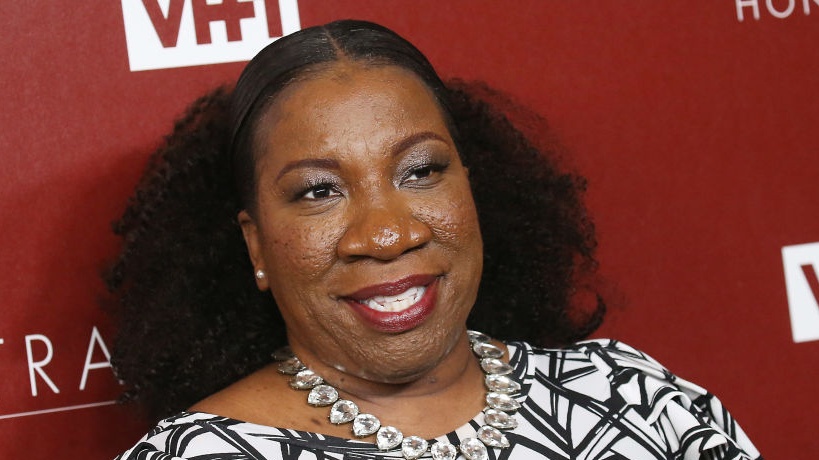In a special issue of i-D, co-curated by Rihanna, the songstress offered a series of questions to the founder of the #MeToo movement, Tarana Burke, to discuss her work and her success in life.
In the “Rihannazine,” the social justice activist opened up about her daughter, who she credits as her biggest success.
While raising a Black child at a young age is Burke’s proudest accomplishment, she also reflected on her biggest failure — also having to do with her now 22-year-old. Burke discussed how she failed to support them when they came out as non-binary.
“My daughter is queer and non-binary, and when they first came out to me at 12 or 13, I did not respond well,” she told i-D. “We’ve talked about it a lot, and I’ve apologized, but when I think about it now I still cringe.”
The executive director of the Me Too Movement organization said at the time she was struggling with religion and allowed others to influence her thoughts and reactions.
“I don’t have any shame in that — a lot of us come to understand things better, and fight for them and defend them, when we have a personal connection. So I’m grateful,” Burke said.
Now, she uses that experience to inform her advocacy.
“All lives really do matter! All Black lives, all queer lives, all trans lives,” she said. “How could I stand up and advocate for people’s survival if I couldn’t stand up for every kind of survivor? I told y’all, I love my baby!”
Recently, Burke told InStyle that through her organization along with Foote, Cone and Belding ad agency, she is releasing a digital platform to help survivors of sexual assault and allies. She says that while resources such as RAINN (Rape, Abuse & Incest National Network) are great, the platform she is launching is more personal.
“But as a survivor, I need a different kind of information — more accessible, more personal. Me as a survivor and you as a survivor have different experiences around what that means,” Burke said. “There is a healing side to the website, and then on the action side is this tool that allows you to put in your zip code and find out all the ways people are working to end sexual violence right in your neighborhood.”
Through the platform, which is set to launch this summer, users are able to access bystander intervention classes, find local crisis centers, donate money and more.
While much of the 46-year-old’s work has been finding justice for survivors of sexual assault, she said it’s mostly about helping survivors find joy again after healing.
“This work is about us figuring out what it means to come back to yourself and who this new post-traumatic person is, how to feel whole again,” she said. “When I can have experiences with survivors that are about how they access their joy, that’s some of the best work to have. Joy is possible.”
